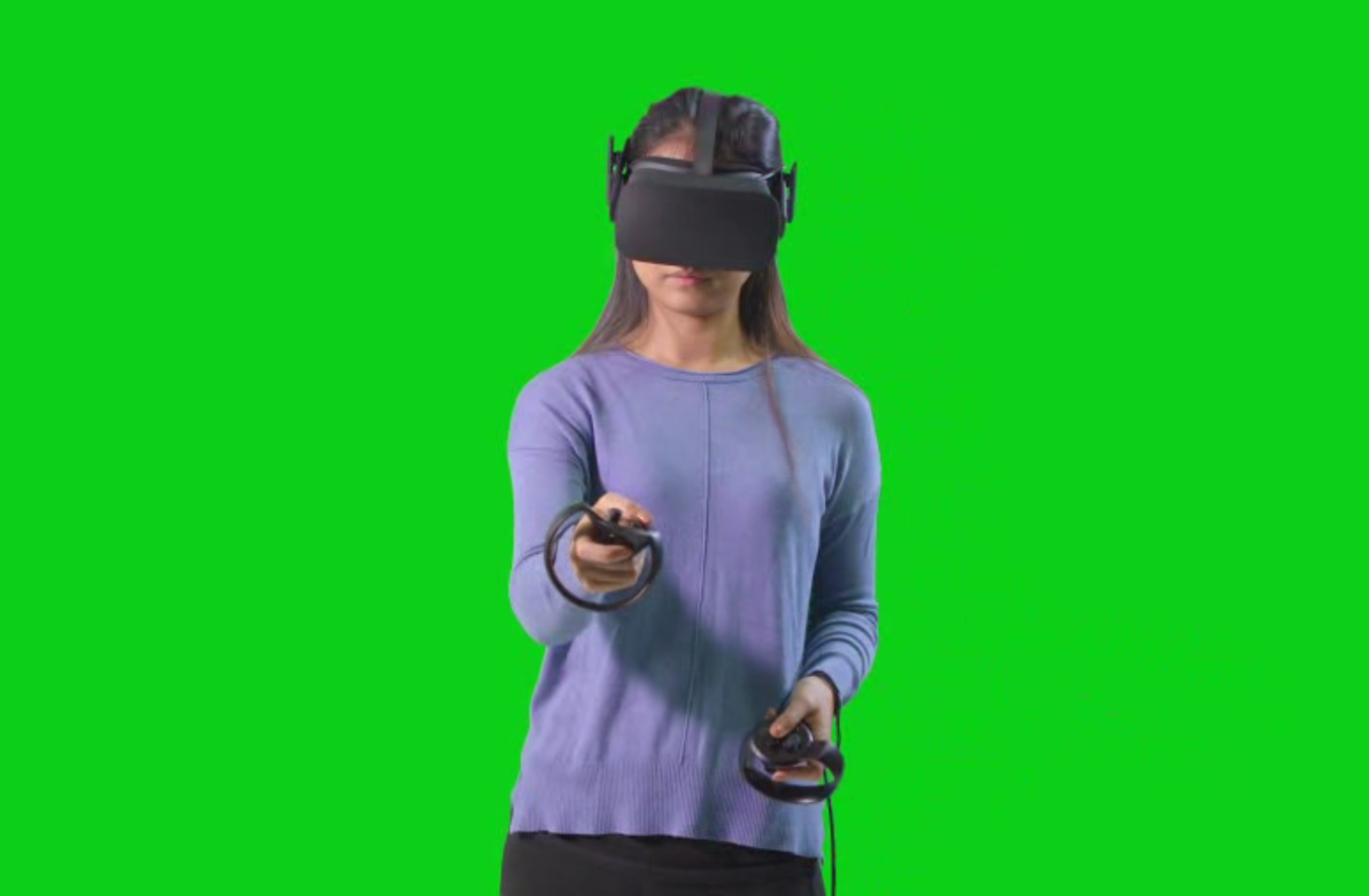Video
Adding video to your scenes
TODO:
- Broken link doc:virovideo-2-compare
- Broken link doc:viro360video-1)
Viro supports various components for displaying video. Video can be displayed in 360 degrees, surrounding the user, or on a flat plane, simulating a physical video screen.
Video Screen
The <ViroVideo> component can be used to display video on a 2D screen. Like all UI elements, you specify the position in world space. You can also set the width and height of the screen, and set the video via the source attribute, as shown in the example below.
<ViroVideo
source={require('./video/myvid.mp4')}
height={2}
width={2}
loop={true}
position={[0,2,-5]}
/>
Supported video formats are .mov, .mp4, .mpv, and .3gp. The video source may be a remote URL or a local file resource. To invoke with a remote URL, set the source to a URI. For example, {uri:"http://example.org/myvideo.mp4"}. To invoke with a local file resource, use require: require('./myvideo.mp4');.
For a full list of properties, refer to the ViroVideo reference.
360 Video
Spherical videos that surround the user can be displayed via the <Viro360Video> component. These videos are displayed as a scene background , behind all other UI elements.
<Viro360Video
source={require("./video/myvideo.mp4")}
onFinish={this._onFinish}
loop={false}
/>
As with 2D videos, 360 video sources may be remote URLs or local file resources. For a full list of properties, refer to the Viro360Video reference.
Alpha Video (Chroma Key Filtering)
Viro supports rendering partially transparent video over any VR, AR, or 3D scene. For AR scenes in particular, this enables "hologram" type experiences like Will.I.Am on CNN or Princess Leia in Star Wars.
Alpha video works via "chroma key filtering". Chroma key filtering removes (makes transparent) all colors from a video that are within an epsilon range of a target color. This technique is useful when rendering "green screen" or "blue screen" videos, as is commonly seen in newscasting and motion pictures. The videos in their raw form look something like the image below.

The code below shows how to enable chroma-key filtering, by setting the chromaKeyFilteringColor property on the <ViroMaterial> being used by the <ViroVideo>.
return (
<ViroScene>
<ViroVideo
source={require('./video/myvid.mp4')}
height={2}
width={2}
loop={true}
position={[0, 2, -5]}
materials={["chromaKeyFilteredVideo"]}
/>
</ViroScene>
);
...
ViroMaterials.createMaterials({
chromaKeyFilteredVideo : {
chromaKeyFilteringColor: "#00FF00"
},
});
Manipulating Video
Both the <ViroVideo> and <Viro360Video> components enable you to:
- Adjust volume via the
volumeproperty - Mute the video via the
mutedproperty - Pause the video by setting the
pausedproperty - Seek the video to a specific time in seconds by invoking the
seekToTime(time)method
You can also respond to various callbacks:
onFinishis invoked when a video finishes playing (if looping, this is invoked at the end of each loop)onUpdateTimeis invoked every second with the current time transpired in the video, andonErroris called when we encounter an error loading or playing the video.
The following example illustrates these features.
var VIDEO_REF = "videoref";
const VideoTest = () => {
const [muted, setMuted] = useState(true);
const [volume, setVolume] = useState(1);
const ref = useRef(null);
const handleVideoFinished = () => {
console.log("Video finished!");
};
const handleUpdateTime = (current, total) => {
console.log("Video time update, current: " + current + ", total: " + total);
};
const handleVideoError = (event) => {
console.log("Video loading failed with error: " + event.nativeEvent.error);
};
const handleClickRestartVideo = () => {
if (ref.current) ref.current.seekToTime(0);
};
return (
<ViroScene>
<Viro360Video
ref={ref}
paused={false}
source={require("./res/test-video.mp4")}
loop={true}
muted={muted}
volume={volume}
onFinish={handleVideoFinished}
onUpdateTime={handleUpdateTime}
onError={handleVideoError}
/>
<ViroText
position={[2, -2, -5]}
text="Restart"
onClick={handleClickRestartVideo}
transformBehaviors={["billboard"]}
/>
</ViroScene>
);
};
In particular, the example above shows how to respond to the various video callbacks, and provides an example of how to use the seekToTime function. When the <ViroText> component is tapped, handleClickRestartVideo is invoked, which sets the time back to zero.
Updated almost 4 years ago